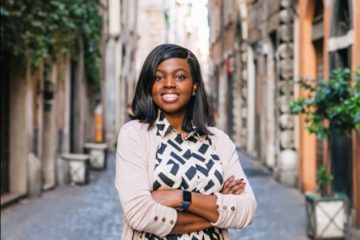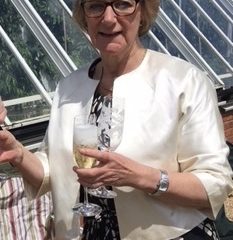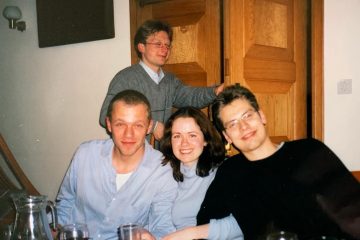My plane is delayed. My sister clumsily tries to comfort me.”
Italians are always late!”
“So what?”
I had perfectly calculated how to get to college before sunset. A shape sorter of trains and taxis.
“In England they are called cabs …”.
“Listen, can you tell me again your address?”
“I don’t know the postal code. Actually, it does not exist. It is a new place. “
My sister looks at me puzzled, her brow furrowed.
Italian universities do not shine organisationally. I begged every employee of the University of Naples “L’Orientale” to quickly convert the result of the exams I passed at SOAS University in London on Erasmus. An endless rummage of unanswered emails and total discomfort. My master thesis had been ready for months, but my PhD offer from Cambridge was still “conditional” at the end of August. Result? “We’re not sure we have accommodation for you in college, but there would be a room in Swirles Court …”. The infamous Swirles Court, North West Cambridge, a construction site under construction, a few lost souls. “I will need a bicycle.”
The plane is only delayed an hour. I cross the college gates before sunset. A carpet of leaves on the ground. At nineteen I published a novel. The back of the cover reads “And the leaves, and the leaves on the ground are the most cruel and sharpest thing in this world, if you don’t have someone to step on them with, if you don’t have anyone by your side.” For the first time, I go weak at the knees. I have always been told that I am intimidating. Will I walk with someone, will I have friends, will I be alone?
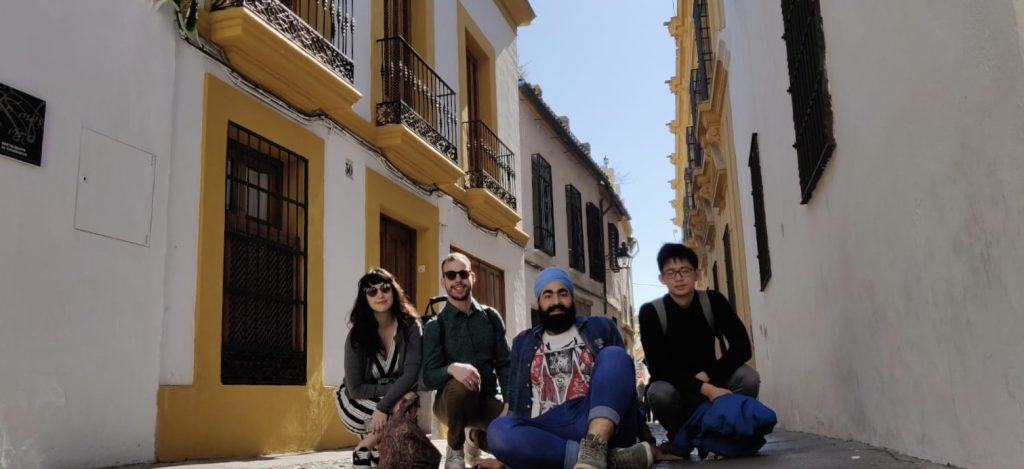
I was born in Catania, Sicily, at the end of the twentieth century, between two worlds. “Connecting” has not always been easy. Sicily is a land of contrasts, the volcano and the snow, the Greek temples and the church bells at midday. I wonder if it will be easier to live here. “Hello”. Josh welcomes me to the CR, the common room of the college. “I have no idea where this Swirles Court is.” I have a suitcase almost as tall as me. I don’t know who drags who, if it’s the suitcase dragging me out of college, into a cold English late-September evening (it’s always cold for a Sicilian in Cambridge).
After half an hour, the taxi driver surrenders. “Look, I don’t know where to go, sorry.” And now I’m alone, I don’t know where I am, my phone died, it’s raining. “In England we say it is raining cats and dogs”. “It’s one of the most ridiculous things I’ve ever heard.” I stop a passerby. He seems intimidated. I remember that north of Rome, “the north”, people are different, they are all a bit more shy. I hurriedly apologise, and ask if he can call a taxi for me. “In England they are called cabs …”.
When I finally reach Swirles Court it is night. My room is in block C2, second floor. The walls are purple. We are the first inhabitants. Everything is immaculate. In the kitchen someone cooks. A woman in her fifties greets me with a glass of wine in her hand. “Come in, come in!” This is how I know my first neighbour. Patrick, a red sweatshirt with ‘Harvard’ written on and a passion for the Romans and classical music. “Where are you from?”. “Sicily”. I have to explain for the first time why I insist on saying “Sicily” and not “Italy” – a long story.
My year at Swirles Court is the best year of my life. We are hermits. We live so far from the city that we are all forced to become friends. Somebody swears it is the coldest year in Cambridge in the last fifty years. The river freezes during the rowing competitions. Benjamin – engineering, the room in front of mine, and the best pancakes in the world – mutters that it’s a misfortune. I nod, pulling the sixth pan of lasagna from the oven. I cook for about ten people every week. Luisfer prepares the nachos. Zou brings the tea. Dan has endless Porto reserves in his room. Tom “brings the music”. Sometimes Patrick plays the trumpet and the porters scold us. We are just too loud, we are just too alive. When they do, we go outside, we play in what Marco has baptised the “Champagne Tower”, a weird pile of iron outside our building. I notice I don’t feel cold.

My first year as a PhD student at St Edmund’s is a sweet and frenetic year, made up of pre-Islamic idols – I’m working on the history of pre-Islamic Arabia during Late Antiquity – and endless discussions in the middle of the night. When the hermits of Swirles Court “go to college”, Mount Pleasant, where the rest of the students – those “lucky” ones – live, they go together, pressed in taxis too small – “In England they say cabs …” – and always return home together. My friends call me “the Queen of Swirles”. Some argue that without my lasagna they would not have known each other, that I am the glue of the Eddies at Swirles Court: the “Swirlies”. I’ve never felt so at home in my entire life.
The year gallops. My first talk during the St Edmund’s Graduate Student Conference, my first “adult” conference in Durham. I present my research, made up of inscriptions, pagan divinities and scriptural religions. The first year report. And then one day my scholarship (AHRC + Cambridge Trust) informs me that they have allocated some money for my fieldwork; I can go to Jordan, I can dig a Byzantine church! I’ve never been so happy. “But so you will have to leave us early…”. I did not think about it. Or rather, I hadn’t thought it would be so heartbreaking. We all cry together for weeks.
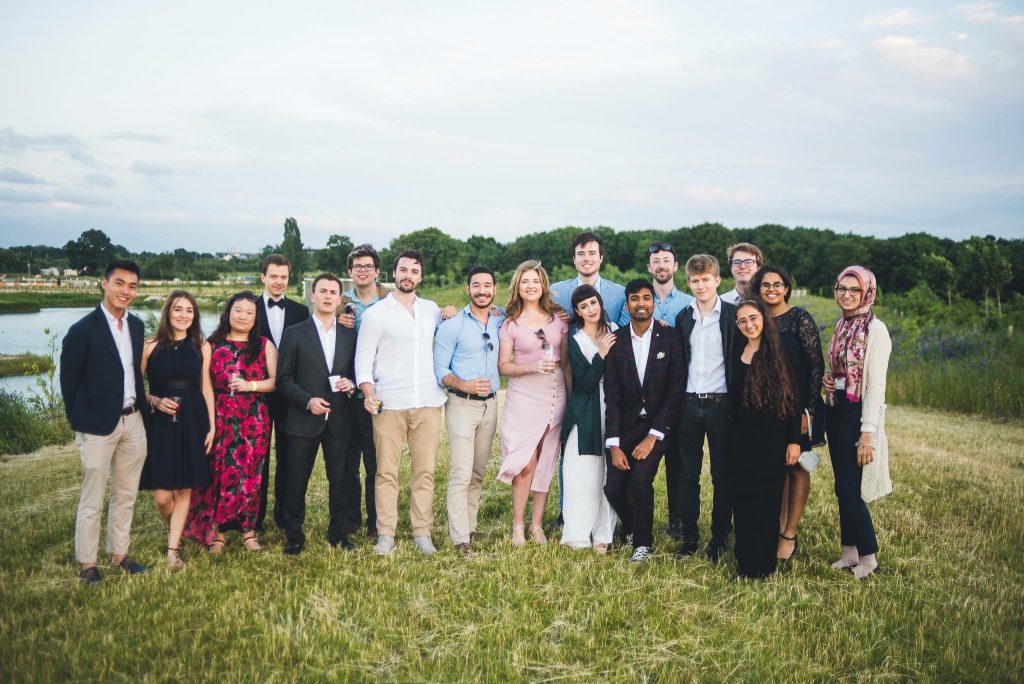
I will not be in Cambridge on my college May Ball day. “What an injustice!” And then my very Italian “art of getting by” produces a crazy idea. I decide to organise a Swirles Court May Ball. Only a month before I had organised with Nicole – sweetest girl, an infinite passion for poetry – a festival, the first artistic festival of St Edmund’s College: Ars et Mundus, a wordplay I came up with one plumbeous Sunday evening. My grandmother spends days reflecting on the best pasta recipes she knows. John, the King of Swirles, finds a photographer. Dozens of pans and trays for cooking pasta and thousands of bruschette, wine and our Champagne Tower. “Promise! Once Swirlies, always Swirlies”. The evening darkens. My plane takes off.
My second year at St Edmund’s marks my “entry into society”. I get a room in the Norfolk Building, far cheaper than Swirles Court. Most of my friends have graduated. I have to start over again. At Freshers’ Week I am omnipresent. If there is an activity to be organised I am in the front line. I take the reins of the Deaddies Poets Society and the Film Society. I fund the Painting Society and help decorate the new CR. I get acquainted with the sounds of college. The bells that mark the meals and the coffees, my neighbour that always wakes up before me. New friendships. My best friend is now Esteban. We joke that we are twins. I’ve never met anyone more similar to me.
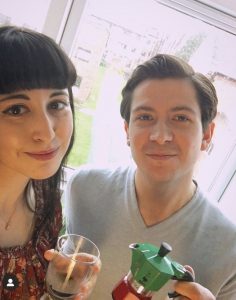
My doctorate leads me to present my research in various places in America and Europe. I get a scholarship to go back to Princeton. Then another to study Syriac in America. And then one more to go to Ethiopia for three weeks. Another summer away from Cambridge.
My second year I sporadically publish some poems, I walk in the same streets that once Sylvia Plath – one of my favourite poetesses – used to stroll along. And time walks with us, between me and Sylvia, and it’s July again and I have to leave again. The goodbyes are heartbreaking. I haven’t learnt my lesson. “We will see you in October!” I try to force myself to be strong. I win an award for my involvement in college life. I promise myself that everything will be fine. Then I close my eyes and I take another plane into the unknown.
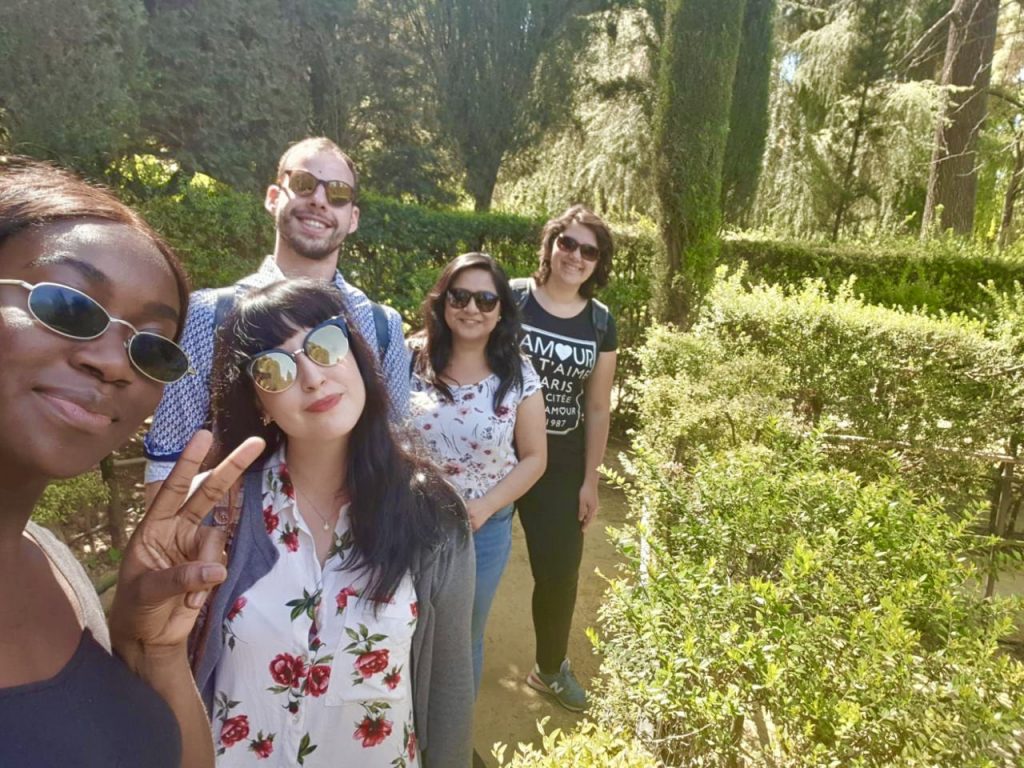
My third year in Cambridge just started. I missed Freshers Week. I was in Ethiopia. I had a difficult summer, many things have changed in my life. I cross the gates of St Edmund’s. “We have many more students this year, don’t worry, you’ll make friends!” I sit in the hall. I look at the door and expect to see one of my friends from the past years coming in. For a moment I mistake one of the “freshers” for Esteban. “Esteban!”. Esteban is back in Los Angeles. I seem to know no one. I sit in front of the first group I see. They smile. “Hello”. They are Mexicans. “Did you know that my favourite novel was written by a Mexican?”.
A new beginning. Someone last summer told me that you have to be alone to experience “the full Cambridge experience”. It’s probably the saddest thing I have ever heard. What happened to “happiness is only real when shared”? I look around me. I am a member of the committee of two more societies this year: the Cambridge History Society and the Cambridge Poetry & Prose Society. I started playing water polo again. Last Saturday we beat Oxford. I look around me. My thousand souvenirs from Ethiopia. “This room could be called Little Ethiopia!” I laugh. Everything flows. I flow too. I embrace the erratic flow of time. I sit next to the statue of St Edmund by the chapel. I close my eyes. I whisper. “I am back, my old boy, look at how many new people we have here.” St Edmund ignores me as usual. He keeps on reading his book. I smile. Mine is still all to be written.
